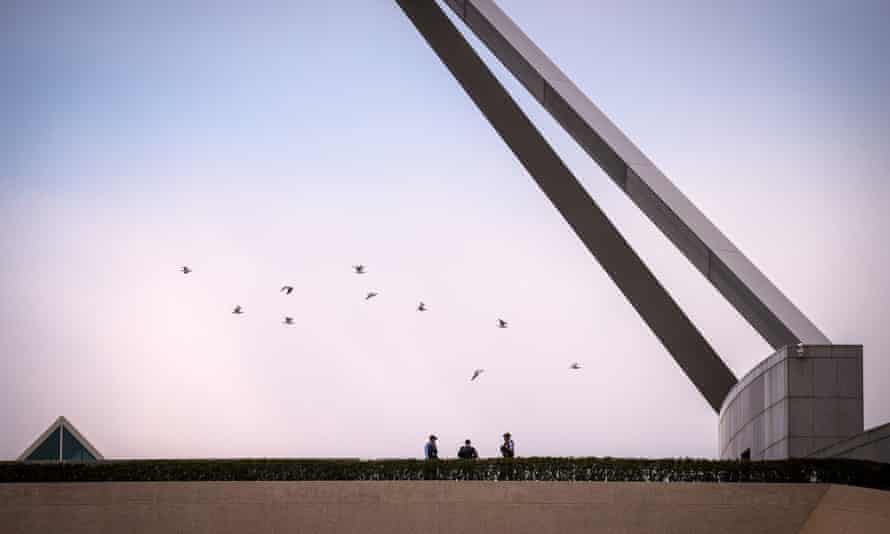Extract from The Guardian
A former colleague says the then lobbyist attended a private function at parliament later in 2019 following the alleged attack in March

Last modified on Thu 25 Feb 2021 03.32 AEDT
A former colleague of the man who allegedly raped Brittany Higgins says he was temporarily allowed back into parliament in 2019 as a registered lobbyist.
The government has faced repeated questions this week about whether the alleged rapist was allowed back into parliament at any point following his termination from the then defence industry minister Linda Reynolds’ office in March 2019.
The government Senate leader, Simon Birmingham, said on Wednesday the man had not been issued with a Parliament House access pass after his old one was cancelled.
Birmingham, however, said it was “impossible to establish quickly” whether he had been temporarily signed in to the building by an existing pass holder at any point since March 2019.
The man had also been added to the government’s register of lobbyists following his termination and stayed on the register until May 2020.
The Guardian has been told the man returned to parliament in the second half of 2019 in his new role with a Sydney-based public relations and lobbying firm.
A former colleague of the man said he was in the building for a small, private event associated with the 250th anniversary of Captain Cook’s Endeavour voyage.
“He was there and someone would have had to sign him in to the event,” the former colleague said, agreeing to speak only on condition of anonymity.
A vast number of pass holders could have signed the man in and there is currently no evidence to suggest that whoever did so had knowledge of the alleged rape.
Birmingham, in response to questions on notice from the Greens senator Larissa Waters, said visitations were recorded by hand manually, making them difficult to search.
“I am also advised that given that the logs for signing in guests to Parliament House are manually recorded, it is impossible to establish quickly if the person in question has been signed into the building by a pass holder at any time since March 2019, and of course any member of the public was able to freely enter its public areas prior to Covid-19 restrictions,” he wrote.
The Department of Parliamentary Services, which manages Parliament House visitations, referred the Guardian to a previous statement by the prime minister, Scott Morrison, which also stated the logs for guest sign-ins were difficult to search.
The public relations and lobbying firm for which the man worked did not answer questions about whether he had returned to parliament at any point.
Higgins on Wednesday evening spoke with the Australian federal police to restart the investigation into her alleged rape.
She had earlier tweeted her support for her ex-boss, Reynolds, who was hospitalised on the advice of her cardiologist on Wednesday. Reynolds had been due to speak at the National Press Club.
Reynolds has faced days of questioning over her handling of the Higgins case and whether her ex-staffer was accorded proper duty of care.
The focus on Wednesday afternoon shifted to Peter Dutton, the home affairs minister, who told parliament he first found out about the alleged rape on 11 February, four days before the prime minister says he knew, and 24 hours before journalist Samantha Maiden first contacted the prime minister’s office.
Dutton, who had previously refused to answer the Guardian’s questions, told parliament he was informed of the matter by the AFP commissioner, Reece Kershaw.
News Corp Australia reported that Higgins had contacted police on 5 February to say she was considering reopening her complaint. The Guardian understands that this is what prompted the AFP to advise Dutton.
Higgins reportedly did not know speaking to the AFP would trigger a process that would see Dutton notified.
The Guardian reported on Tuesday that AFP guidelines, in force at the time of the alleged rape, should have required police to alert Dutton at the earliest opportunity, given the allegations were politically sensitive.
Higgins first spoke with police stationed at Parliament House in March 2019. The guidelines state that even politically sensitive matters in their early stages should be notified to Dutton, even if a formal investigation has not yet begun.
No comments:
Post a Comment